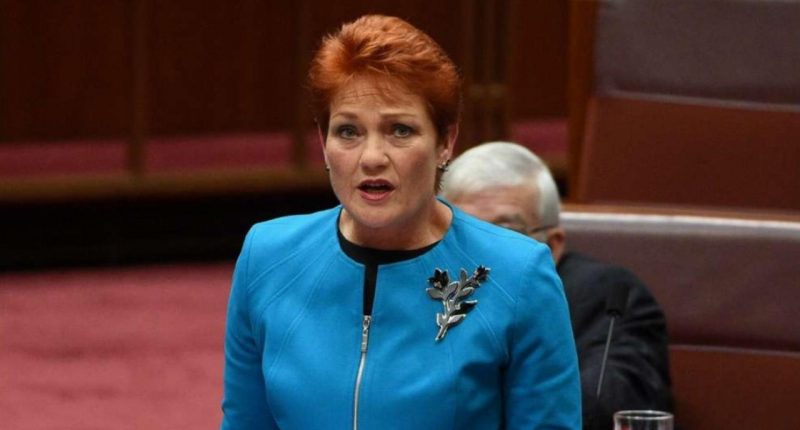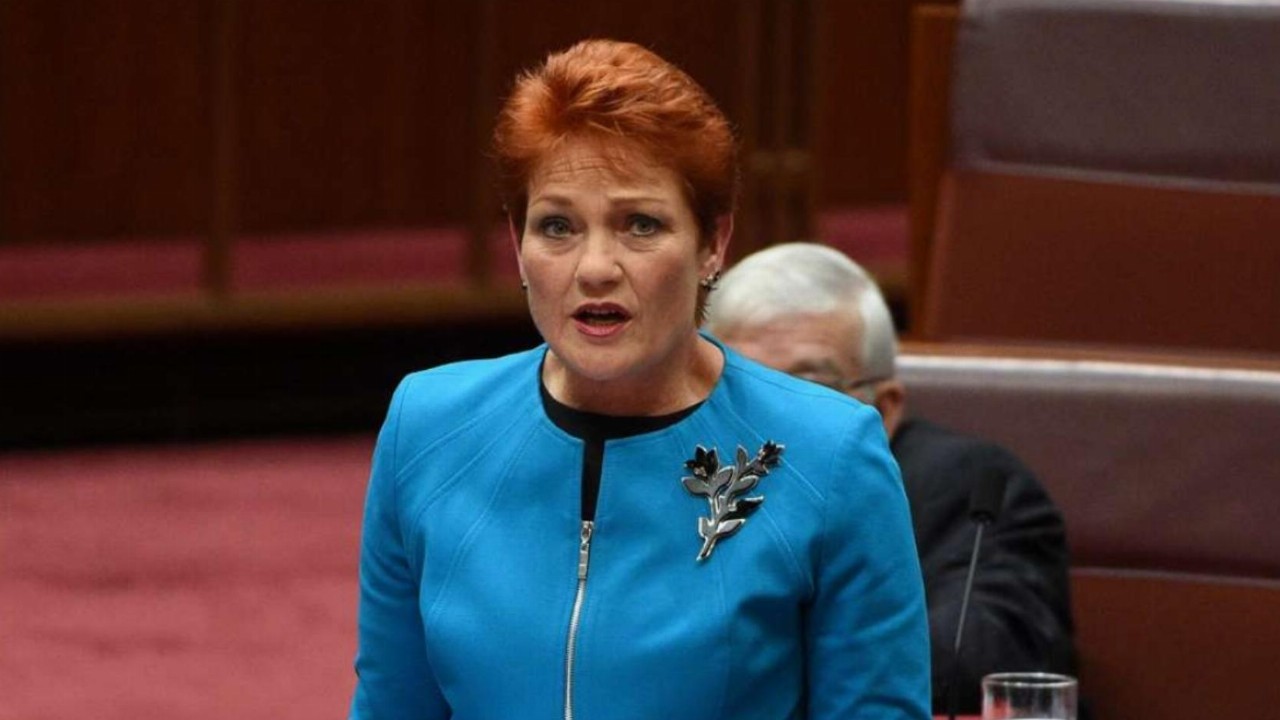- Senator Pauline Hanson has urged the Australian Government to reject a World Economic Forum (WEF) social and economic reform known as The Great Reset
- The Great Reset has been popularised by WEF Founder and Executive Chairman Klaus Schwab
- The WEF is a non-profit member organisation that acts like a thinktank or lobby group
- The idea behind The Great Reset is that COVID-19 has given the world an opportunity to revamp and reform society
- The WEF is pushing for tax overhauls and renewed investment into green infrastructure, with a strong focus on social and economic equity
- Senator Pauline Hanson has brought the matter to the parliament floor and urged the Australian Government to reject The Great Reset’s ideas
- Greens senator Janet Rice blasted Senator Hanson for bringing the issue up, saying it reflects the “the sad, insular, and fear-filled agenda” of One Nation
Senator Pauline Hanson has urged the Australian Government to reject a World Economic Forum (WEF) social and economic reform known as The Great Reset.
Essentially, this idea has been popularised by WEF Founder and Executive Chairman Klaus Schwab, who co-authored a book highlighting the need for greater economic equity, climate reform, and social fairness in society.
The book argues that the COVID-19 crisis, while certainly a terrible global event, presents world leaders with the opportunity to revamp society.
The authors of the book claim that now is the perfect time for an overhaul of oil and gas, tech, education, and working conditions.
“In short,” Klaus argues, “we need a ‘Great Reset’ of capitalism.”
Who is the World Economic Forum?
The WEF is a non-profit member organisation directed by a range of economists, experts, professors, and governors across the globe.
The organisation has no political or governance power but behaves like a thinktank or a lobby group — like, for example, the Australian Institute.
Headquartered in Geneva, Switzerland, the WEF’s key focus points are global security issues, global social problems, and the “fourth industrial revolution” as tech evolves and society changes with it.
What does a Great Reset look like?
At the forefront of the Great Reset are issues like tax reform, investment into “green” infrastructure, the removal of fossil fuel subsidies, and a strong focus on social and economic equity.
However, some of the WEF stances have been met with staunch criticism from its opponents, such as its push for a cashless society. The organisation cites China as an example of a society turning away from cash, but ignores some of the issues of this cashless society model.
For example, China has been blasted for its “social credit score” model in which a citizen’s behaviour can influence their ability to participate in society. A Chinese citizen with a low social credit score may be unable to take out loans, book plane flights, or have access to certain education.
As China’s Premier of the State Council, Li Keqian, puts it: “Those who lose credibility will find it hard to make a tiny step in society.”
The issue with this model — reinforced by a cashless society — is the power it gives to the government. The WEF, by arguing the benefits of a cashless society, is wanting to give a portion of that same power to Western governments.
On top of this, the Great Reset urges governments to steer the market towards fairer outcomes and lay the foundations for a “stakeholder economy”.
The WEF is pushing for large-scale spending programs to introduce changes to wealth taxes and change the rules around intellectual property, trade, and competition.
“The pandemic represents a rare but narrow window of opportunity to reflect, reimagine, and reset our world to create a healthier, more equitable, and more prosperous future,” Klaus writes.
The goals of the Great Reset align with liberal and left-wing economic and social ideologies, hence the criticism is it receiving from conservative and right-wing politicians and commentators.
One Nation lambasts The Great Reset
Now, it’s important to note that the WEF recommendations have not yet been part of any major Australian parliamentary discussion and, as it stands, no legislation is being drawn up in response to The Great Reset.
However, One Nation leader Senator Pauline Hanson has already started urging the government to reject the Great Reset ideals, saying the WEF’s plans are “pushing us towards the socialist left Marxist view of the world”.
“It’s about getting rid of capitalism, and so if you’ve got a company you shouldn’t have shareholders, you should be sharing the wealth around — that is total socialism,” the senator said.
In a media release, Senator Hanson said that to use the pandemic as an excuse to push control agendas and meddle in social systems across the world is “unacceptable”.
“This so-called reset is absolute rubbish and we should make a stand to play no part in it, to protect Australians and our way of life,” she said.
Senator Hanson brought her concerns to the parliament floor yesterday, but said the whole parliament — bar One Nations Queensland senator Malcolm Roberts — treated the issue like a “bloody joke”.
Greens senator Janet Rice said Senator Hanson’s notion reflects “the sad, insular, and fear-filled agenda of One Nation”.
“The truth is unless we take this pandemic seriously and cooperate globally, dying of coronavirus will actually have a much more serious impact on your individual freedoms and your economic freedoms,” Janet responded.
So far, there have been no other responses to One Nation’s call to reject The Great Reset.







